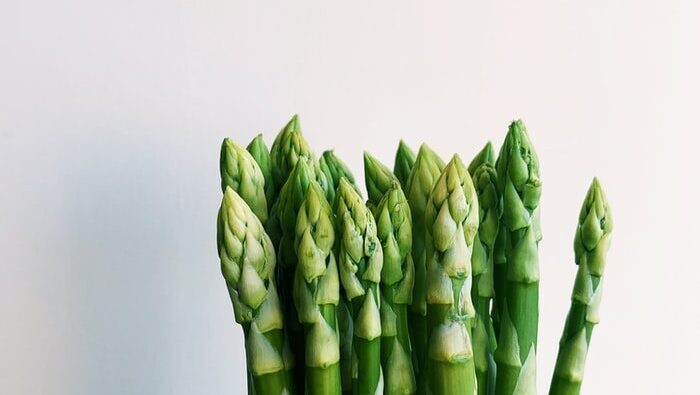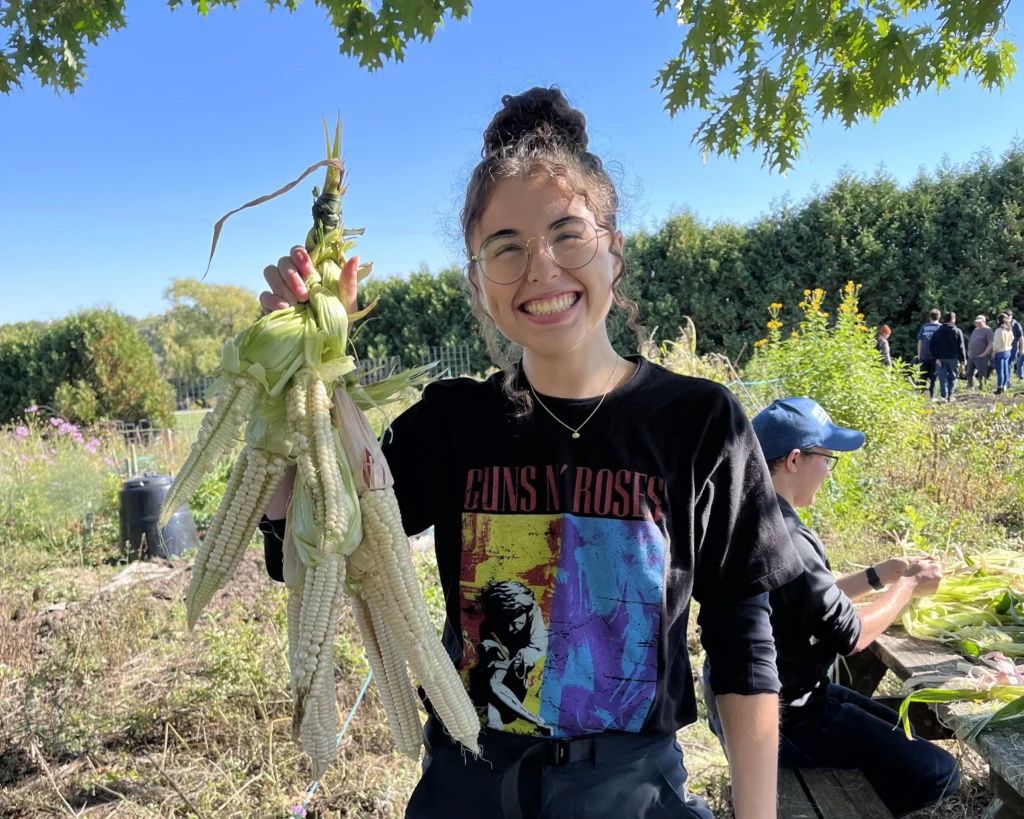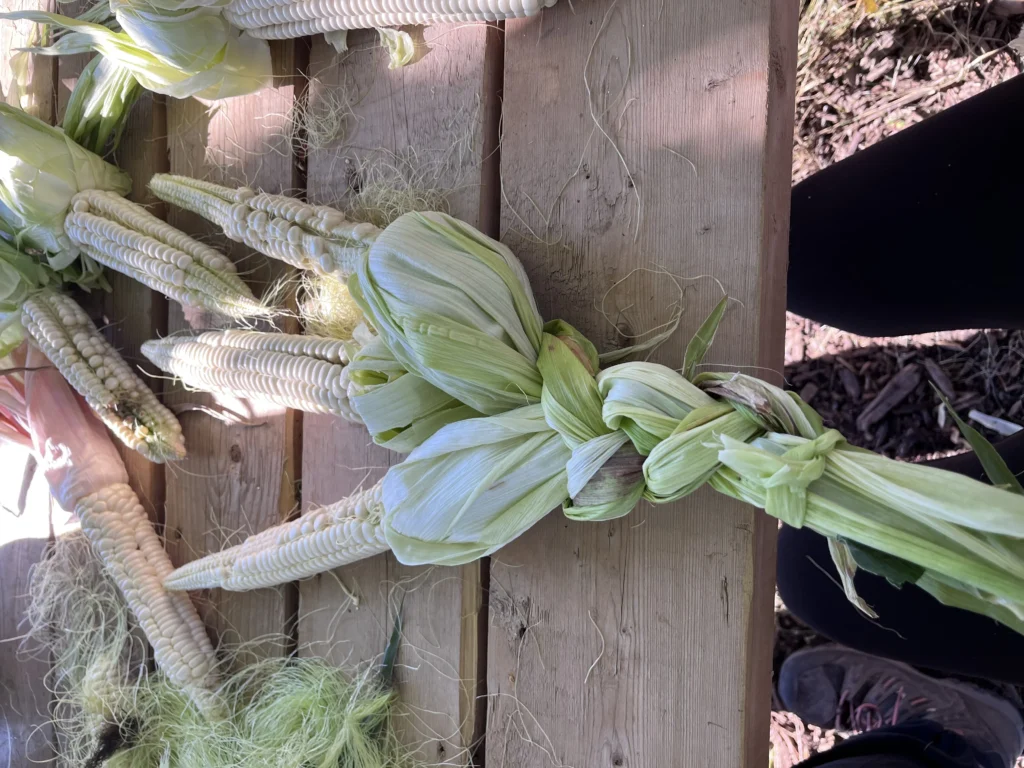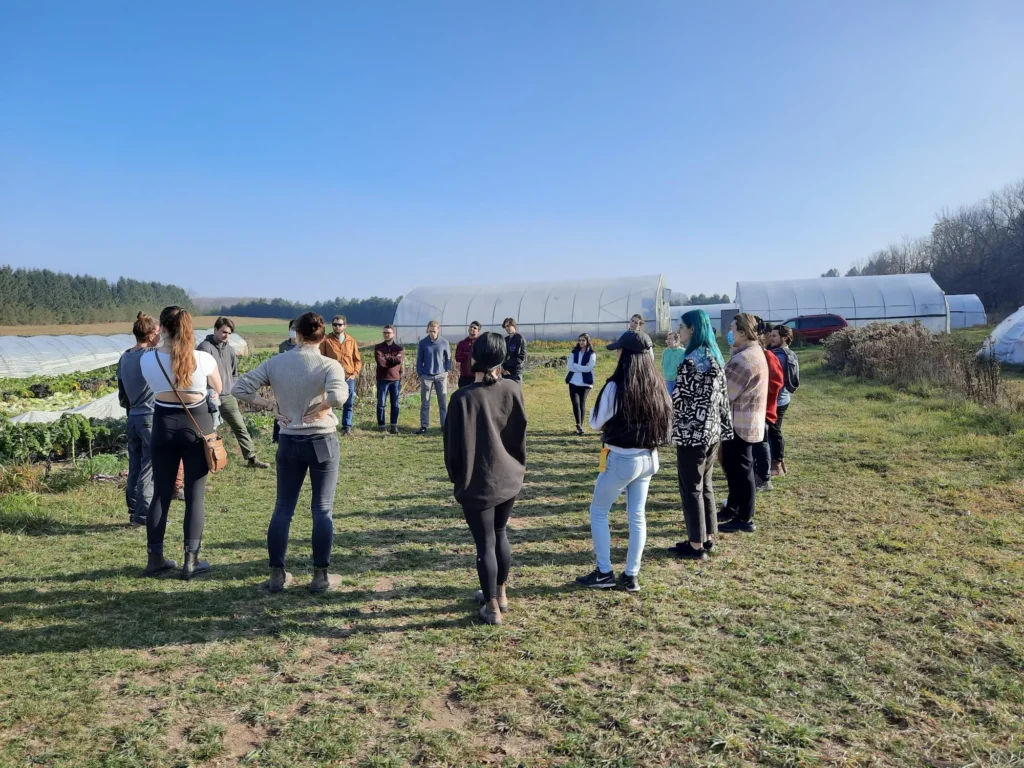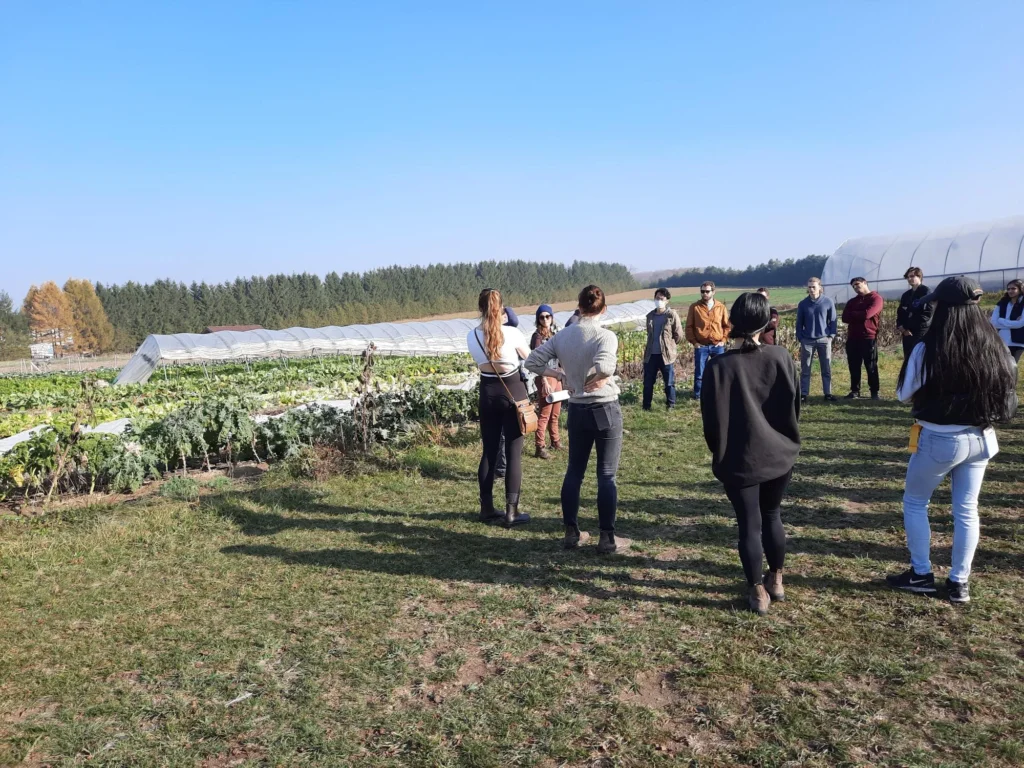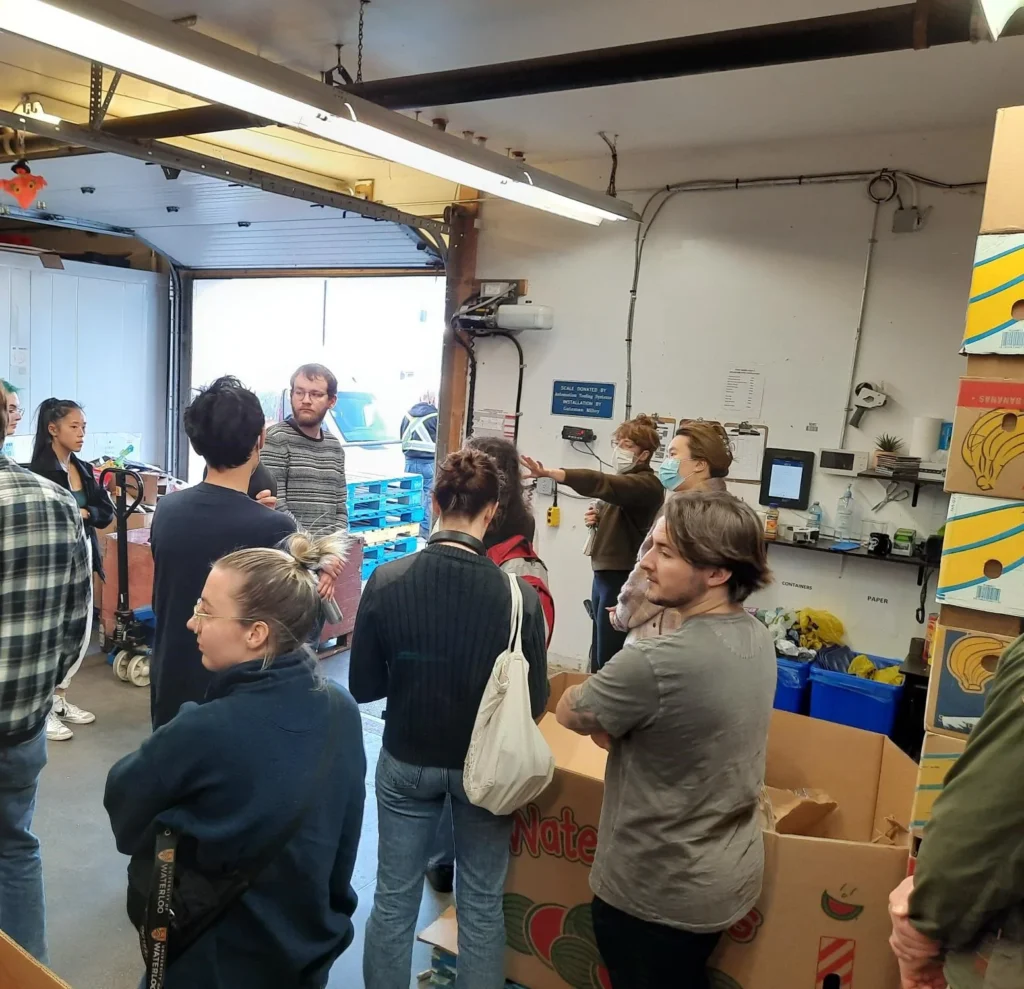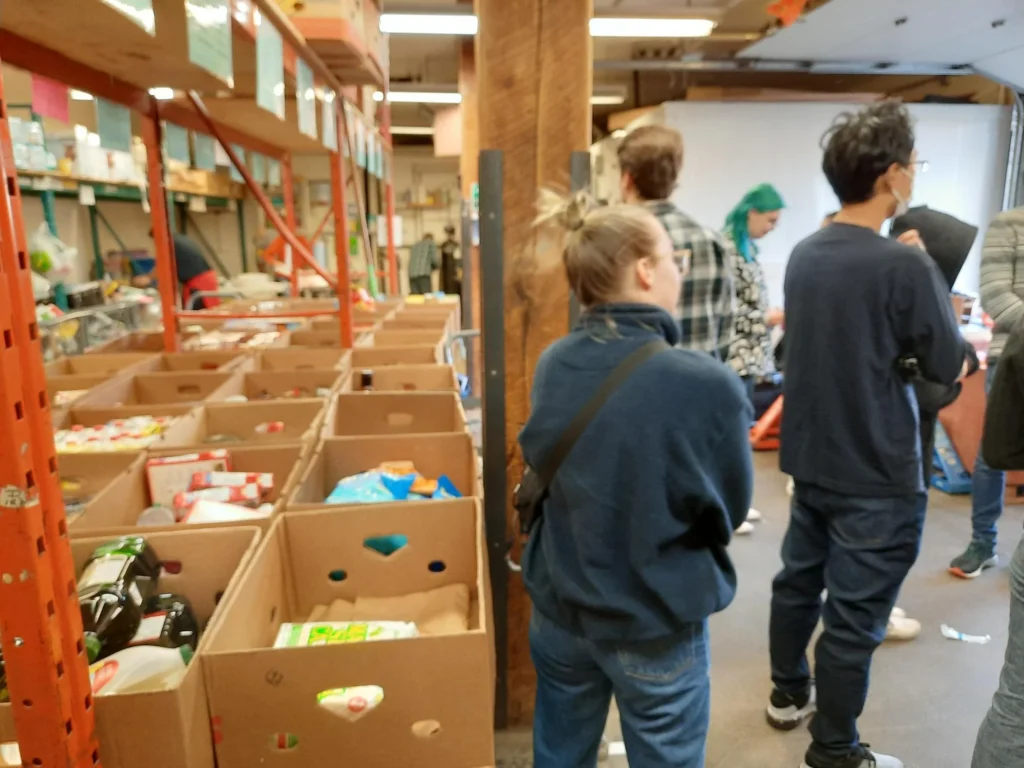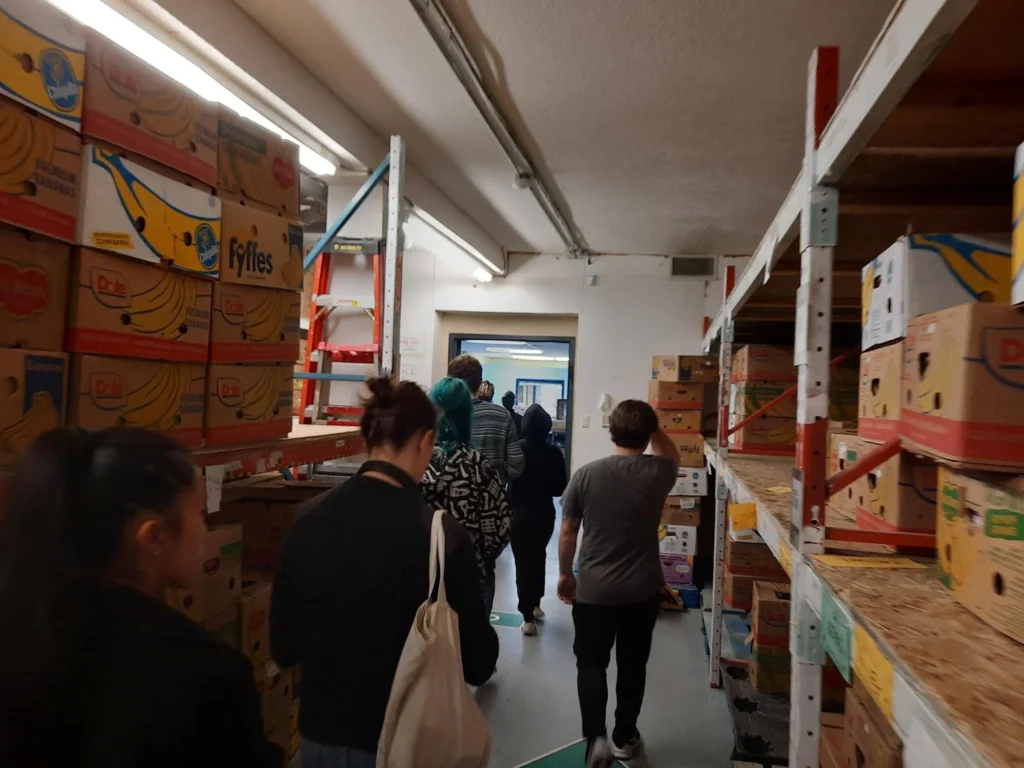In the Fall term of 2022, University of Waterloo Students from class GEOG 460, taught by Dr. Steffanie Scott who is also co-chair of the Food System Roundtable of Waterloo Region, visited various initiatives, not-for-profits, and businesses to learn more about their contributions to a sustainable food system. Their experiences and details about the operations and message of these places were compiled into the blogs below:

In late September, 2022, the class of GEOG 460 visited the Wisakotewinowak Indigenous Produce Garden in Waterloo. The trip was led by Dave Skene (Left), of Métis descent and Co-Executive Director at White Owl Native Ancestry Association, and Mikal Kuzmich, (Right) a Métis Land-Based Educator. At the garden, the class learned about communicating and forming a relationship with the Land, something which Indigenous identity is rooted in. Along with partaking in garden activities, such as shucking and trying to braid corn and weeding the gardens, we learned how access to Land is key in the futurity of land-based relationships and reconciliation.

In early November, a University of Waterloo class, GEOG 460 toured Fertile Ground Farm with Angie Koch, Fertile Ground farm owner, and Nikola Barsoum, an herbalist and owner of a medicine garden and apothecary called Half Moon Herbals, as their guides. Fertile Ground farm leads by example in sustainability and stewardship by operating through the pillars of permaculture to care for the land, care for people, and ensure fair share.

In November, a fourth-year class, GEOG460 from the University of Waterloo met with the founder of the Community Fridge KW, Kamil Ahmed. From Kamil, we learned about the history of fridge, its challenges, and the successes of bringing together the community to help the community in the truest form of mutual aid. The Community Fridge KW provides a pantry and fridge to supply those in the community who are hungry with food, all of which is donated from their neighbors.

In late November, the class of GEOG 460 visited the Cambridge Food Bank to learn about their operations and programs from their Local Food Coordinator, Fig, while touring the facilities. The Cambridge Food Bank offers an inspiring example of how food banks can be centred in food, but be more that just a food bank by offering a variety of innovative programs to build integrity, knowledge and culture to food access. In this blog highlights the dedicated work of volunteers and staff and the details of these programs.
Images from our trips!
